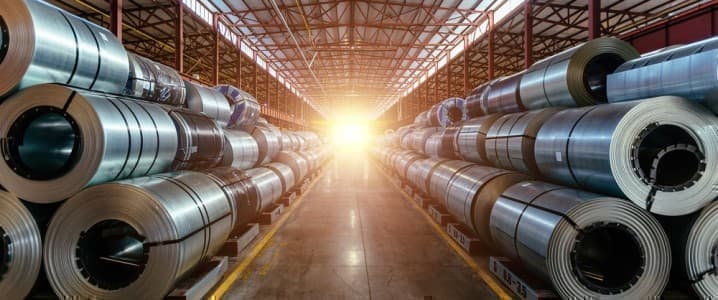
Iron ore futures surged towards $100 per ton in Singapore, reaching their highest level since May. This increase follows recent commitments from the Chinese government aimed at reducing overcapacity in essential industrial sectors. The optimistic sentiment has positively affected ferrous markets, with Singapore futures rising as much as 3.6% in a single session, marking the most significant daily gain since September.
For over 18 months, iron ore futures have fluctuated within a tight range of $90 to $110 per ton. The Dalian Exchange, which is more reflective of the Chinese market, closed at its highest point since April. According to UBS analyst Simon Penn, iron ore has increased by more than 5% in two weeks, recovering a third of its earlier losses related to tariffs in just the last ten sessions. Penn noted that lead prices have also risen nearly 4% in the same timeframe.
Government Measures and Market Reactions
The recent rebound in iron ore prices is attributed to the Chinese government’s vows to address excessive competition and supply issues in key industries, particularly steel. President Xi Jinping visited a valve manufacturing facility in Shanxi province this week, underscoring the importance of traditional industries and emphasizing that they should not be neglected.
Renewed demand is also evident in the futures market for Dalian coking coal, an essential component in steel production. On Thursday, coking coal prices rose over 4.5%, surpassing 900 yuan ($125.40) per ton, before slightly retracting. Meanwhile, data from Mysteel indicated that rebar steel inventories are still decreasing, even though stockpiles typically begin to rise during this period. The slight accumulation of hot-rolled steel suggests demand is better than anticipated.
Broader Economic Implications
In a related development, rumor of forthcoming policy support boosted Chinese property stocks. The Bloomberg Intelligence index for the nation’s real estate shares surged by 11%, while Goldman Sachs’s China-H Real Estate basket gained 7.4%. Notably, individual stocks such as Logan Group Co. soared by 85% in Hong Kong, and Sino-Ocean Group Holding Ltd experienced a 37% increase.
These developments suggest that Beijing may be implementing more decisive measures to stabilize the economy, potentially as a response to rising economic dissent. The government’s commitment to tackling industrial overcapacity could signal a shift towards a more proactive economic strategy.
The actions from Beijing and the subsequent market reactions highlight the interconnectedness of industrial policy and commodity prices, affecting not only iron ore but also broader economic sectors.






